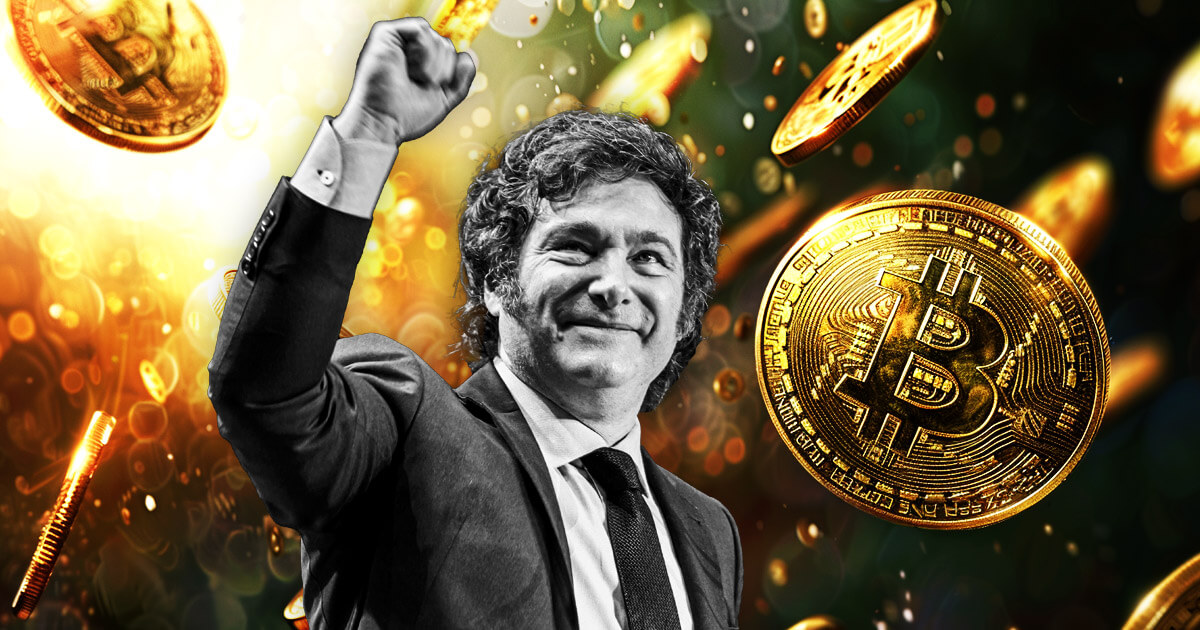
Argentina President Javier Milei has reiterated his support for Bitcoin as a tool to revitalize the national economy.
In a June 19 statement on X, Milei announced that Argentina would allow the competition of various currencies, including digital assets like Bitcoin. He stated:
“There will be free competition of currencies. If you want to use Bitcoin, there will be no problems. You can also use other units such as WTI, BTU, and the most appropriate for your business. In accounting terms, it is solved by the functional currency method.”
Former VanEck executive Gabor Gurbacs welcomed Milei’s remarks, saying:
“The world has much to learn from the modern economic blueprint in Central and South America, with Argentina and El Salvador leading.”
Meanwhile, Milei’s stance aligns with his advocacy history for the crypto industry. During his campaign, he criticized central banks, calling them a “scam,” and promoted using cryptocurrencies to return financial power to the private sector.
Since taking office, however, Milei has not enacted any official Bitcoin policies. Instead, his administration has been focused on tackling Argentina’s severe financial crisis, emphasizing immediate action and preparing the nation for significant austerity measures.
These measures appear to be paying off, with the country’s monthly inflation rate falling for a fifth straight month in May to under 5%, down from a peak of over 25% in December when Milei took office. However, its annual inflation remains the highest globally at nearly 300%.
Due to this, crypto community members speculate that Milei might follow El Salvador’s example of Bitcoin adoption. Reports suggest Argentinian agencies are collaborating with their El Salvador counterparts to develop a Bitcoin adoption strategy. Additionally, Milei has engaged with various crypto projects, including Worldcoin.
Nonetheless, Argentina is one of the top 15 crypto markets in the world, according to a Chainalysis 2023 index. The report noted that Argentines have increasingly turned to Bitcoin and other digital assets as a hedge against the prevailing economic crisis in the country.
 Bitcoin
Bitcoin  Ethereum
Ethereum  Tether
Tether  XRP
XRP  USDC
USDC  TRON
TRON  Lido Staked Ether
Lido Staked Ether  Dogecoin
Dogecoin  Figure Heloc
Figure Heloc  Cardano
Cardano  Bitcoin Cash
Bitcoin Cash  Wrapped stETH
Wrapped stETH  WhiteBIT Coin
WhiteBIT Coin  Wrapped Bitcoin
Wrapped Bitcoin  Wrapped eETH
Wrapped eETH  USDS
USDS  Chainlink
Chainlink  Binance Bridged USDT (BNB Smart Chain)
Binance Bridged USDT (BNB Smart Chain)  Monero
Monero  LEO Token
LEO Token  WETH
WETH  Stellar
Stellar  Coinbase Wrapped BTC
Coinbase Wrapped BTC  Sui
Sui  Ethena USDe
Ethena USDe  Litecoin
Litecoin  Zcash
Zcash  Avalanche
Avalanche  Hyperliquid
Hyperliquid  Shiba Inu
Shiba Inu  Hedera
Hedera  Canton
Canton  USDT0
USDT0  sUSDS
sUSDS  World Liberty Financial
World Liberty Financial  Dai
Dai  Toncoin
Toncoin  Cronos
Cronos  Ethena Staked USDe
Ethena Staked USDe  PayPal USD
PayPal USD  Uniswap
Uniswap  Polkadot
Polkadot  USD1
USD1  Mantle
Mantle  Rain
Rain  MemeCore
MemeCore  Bittensor
Bittensor  Pepe
Pepe 


